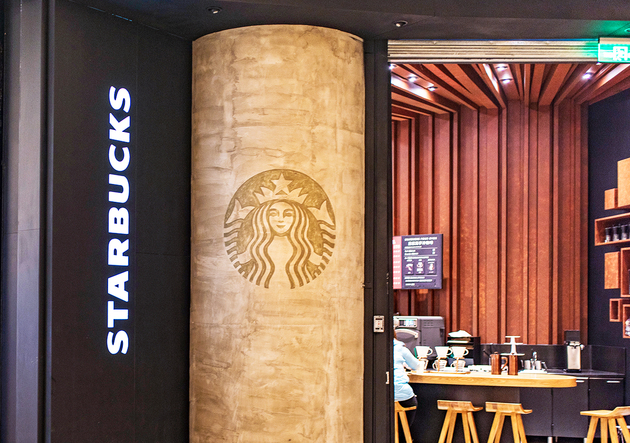Aug. 2 (NBD) -- U.S. coffee giant Starbucks finally jumps on the coffee delivery bandwagon.
At a press conference held Thursday in Shanghai, the coffeehouse chain said it will join forces with Chinese e-commerce magnate Alibaba to deliver coffee and baked products to Chinese consumers.
Starbucks said it will first test new delivery options at 150 stores in Beijing and Shanghai, and will then extend the service to more than 2,000 outlets in 30 cities by the end of this year. Ele.me, the food delivery unit owned by Alibaba, will set up a dedicated team to handle the logistics for the coffee firm.
Partnering with a third-party delivery platform is a big change to Starbucks. In the U.S., the coffee company depends entirely on its own network for sales. Joining the delivery game came on the heels of the company's announcement of a rare sales decline in the Chinese market.

Photo/NBD
Last week, Starbucks reported financial results for its fiscal third quarter ended July 1, 2018.
In the China/Asia Pacific region, its operating margin slid by 7.6 percentage points year over year to 19 percent despite a rise of 46 percent in revenue. This marks the coffee giant's first ever decline in the metric in nine years, and the company attributed the drop to shareholding changes in its East China outlets.
In China alone, the comparable store sales decreased by 2 percent in the quarter, a stark contrast to the 7 percent growth for the same period of the previous year.
Zhu Danpeng, an analyst in China's food and beverage industry, told NBD that Starbucks takes a hard blow from the rise of China's tea drink market and Internet-based coffee companies, especially startup Luckin Coffee.
It took only half a year for Luckin Coffee to grow into a unicorn. In July, the company raised 200 million U.S. dollars in a funding round that valued the chain at 1 billion U.S. dollars, and this makes it a strong rival to challenge Starbucks' dominance in Chinese coffee market.
Luckin Coffee has opened 809 stores as of July 2018 and aims to increase the figure to 2,000 by the end of this year, the company's Co-Founder and Senior Vice President Guo Jinyi said Wednesday at a press conference.
Now, Starbucks operates approximately 3,300 shops in more than 140 cities in China. At its first-ever China Investor Conference held in Shanghai in May, the company announced plans to build 600 net new stores annually - a rate of a new store every 15 hours - over the next five years in mainland China - a goal that will double store count in the market from the end of fiscal 2017 to 6,000 across 230 cities by fiscal 2022.
Amid the increasing competition, it is appropriate for Starbucks to change its operational model to end sales decline and provide greater convenience to consumers in China, said analyst Zhu Danpeng.
The coffee behemoth has made up its mind to integrate mobile commerce into its core business.
The deal with Alibaba will see Starbucks partner with the Chinese tech tycoon's Hema supermarkets to create a new retail distribution system by setting up Starbucks Delivery Kitchens, which will be first seen in selected Hema supermarkets in Shanghai and Hangzhou as early as September.
Also, the coffee giant will join forces with Alibaba to build Starbucks smart stores, which will get access to the Starbucks Rewards membership system. This means consumers can place orders via Taobao, Tmall, Alipay, Ele.me, Hema, and Koubei in addition to Starbucks' own app.
Email: zhanglingxiao@nbd.com.cn


 川公网安备 51019002001991号
川公网安备 51019002001991号





